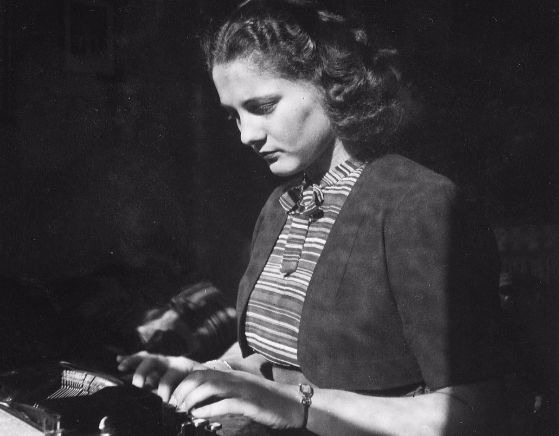10 Steps to Discover Your Story and Write Your Book.

Have you ever had this experience? You hear of a book and you think to yourself, This is the one — the book I’ve been waiting for, all my life. You have to have this book.
You feel obsessed, and can’t wait to get your hands on it.
You think this book is going to give you the answers to everything you seek and haven’t found. You may as well go right ahead and pause your life until you’ve read it. And when you get it, happiness!
Then one of two things happen.
It’s not the one, or it’s close. So very close sometimes. And you love that book. You carry it around like a good luck charm, with the power to ward off evil spirits. No ill will against the other book. Your search continues.
That’s when you have to ask yourself, What was it that was missing? The book you want to read and haven’t found? Only one person can write that book: you.
If you do want to do it, read on.
1. So you want to write a book but the story is evading you, what can you do? Chances are your subconscious already knows so help it out. If you’re a keeper of notebooks, go back through those and see if you can find clues. For a long time I thought my first novel idea came to me in a dream, a bolt from the blue. But looking back through old notebooks, I found the idea had been there all along, in different forms perhaps, but with common threads. If I had written more in those notebooks, I might have come to it sooner. Not a keeper of notebooks? Then now is a good time to start.
2. What are you passionate about? What gets you all fired up? What could you talk about forever? What subjects do you think about most? Make a list. Some say you should write what you know. I say you should write what you’re passionate about.
3. Make a list of your favorite books, series and movies. Note common themes, and crucially, what you liked about them, and what was missing. What haunts you? What needs further exploring, what can’t you forget?
4. Next, ask yourself what your dream book looks like. The book to end all books. What themes does it explore? What are the characters like? When and where is it set? Go wild and deep with this one — detail, detail, detail. Then realize, this is your book.
After this, you’re ready to start writing. Don’t believe me? Here’s what you can do next.
5. Write a rough outline, including an ending. The whole story on a page kind of thing. This is your guide. The story, once written, will most likely be different, especially the ending, but that’s fine.
But now you have a story, and now you have options.
6. Start writing and let your subconscious, then the characters, lead the way. Or, write a more detailed outline, do some research, and plot your chapters. For example, you could write a line per chapter, outlining the main action and how that chapter ends. And then start writing. Or, you may just find another way. There is no right or wrong way, but the subconscious route is mine. I dabbled with outlines, but it doesn’t seem to work for me. I like to find my story in the process of writing. If you’re new to this, you could try both ways, see what works. A word of caution though, don’t get too caught up with research or methods, or anything that will keep you from writing.
7. Give yourself a daily target. I wrote my first novel in Word, with a target of 1000 words every day. Some days I wrote less, some more, but watching the word counter fly was motivating for me. With my second book, my goal is 2000 words a day. For some people that’s a lot, and for some it’s nothing.
8. When writer’s block strikes, keep in mind that the block is probably you. We all experience it. But we are energy, and energy wants to move. What you need is a writing habit. Get in the habit of showing up and hitting your word count, no matter how you feel. Sometimes you have to force it, and that’s fine. It won’t kill you. Once you begin, it’s easier to keep going. Another thing that helps me is writing at the same time every day. Early mornings are my preference. In this time, I don’t need to think about anything else. In this time, there is nothing else.
9. Build a wall. The only kind of wall I favor is a wall of positive energy. Build it high around you. Surround yourself with positive people, quotations, art, talismans, good luck charms, photos, articles, blogs, books, you name it. Immerse yourself in these things, spend time with them. Let great minds help and stay away from the rest.
10. Finally, the first draft is the time to let yourself go wild. When it starts to feel heavy, remind yourself what a privilege it is. You’re allowed to enjoy it. There is no right or wrong way, it just has to be written. Trust the process, every bit of it. You got this.
P.S. I haven’t written my perfect book yet, the one I’m looking for. But I’m closer than I was before, and I’m trying. I’m going to keep trying.
***

Jane Gilheaney Barry is an author, art therapist, and creative enabler. She lives with her husband and children in rural Ireland. Her first novel, Cailleach~Witch, a modern gothic mystery, is available on Amazon. She is currently working on the next in series, ‘Banshee’ and ‘Changeling’. You can follow Jane on Instagram or Facebook.
***
{Join us on Facebook, Twitter, Instagram & Pinterest}
Comments
Comments are closed.


My Homepage
May 25, 2019 at 1:52 am… [Trackback]
[…] Read More here: rebellesociety.com/2019/04/30/janegilheaneybarry-write/ […]